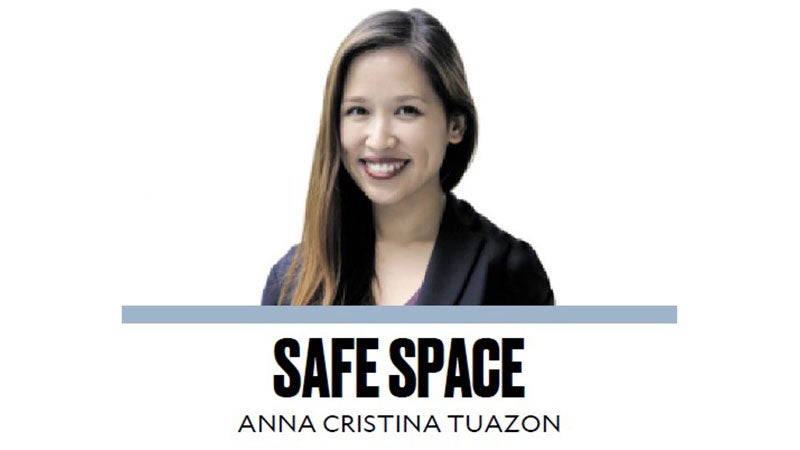A post-dynasty world

The anti-political dynasty bill is being tackled in earnest at the Senate at an interesting time when we have four pairs of siblings (Senators Jinggoy Estrada and JV Ejercito, Alan Peter and Pia Cayetano, Raffy and Erwin Tulfo, and Mark and Camille Villar), comprising one-third of the Senate body. Also sitting as a senator is the sister of the President, strained relations as they are. I won’t even dare count the number of dynasties in the House of Representatives, where over 80 percent of district seats are held by them, according to the Philippine Center for Investigative Journalism. The executive branch is no better, with 71 out of 82 provinces being led by dynastic governors.
Political dynasties are notoriously tricky to dismantle. They enjoy generations-long loyalty from their constituents and have amassed the kind of wealth and machinery needed to maintain power. Their power doesn’t just come from public office; they entrench businesses within their districts, ensuring that they hold economic sway as well. Their names are on every school and hospital building, ensuring that people know who owns the town.
And yet dismantle them, we must. Our 1987 Constitution mandates Congress to enact a law prohibiting dynasties, but this has yet to come to pass 38 years later. In fact, the creep of political dynasties has reached our party list system, intended to broaden representation, where 36 out of 54 party list groups in the last Congress have at least one nominee from a political family.
Where do we begin to even start imagining a post-dynasty world?
First, people need to see that there is a viable alternative to the status quo. And I don’t just mean alternatives to incumbents. It is not enough to change the players; we must be willing to play a different game. Even when we find a principled candidate, we tend to make a dynasty out of them. This makes sense; it is difficult to let a good person go once their term limits come to an end, especially when there are so few of them. If Pasig City Mayor Vico Sotto had a wife, I bet his constituents wouldn’t mind having him endorse her, just so they could feel that his legacy would continue. (Thankfully, this is not the case, and the mayor has so far not hinted at any relative to take his place.)
Supporting the dynasty system is choosing the familiar, a vote for continuity. It is the safe choice. As the cynics say, “better the devil you know than the devil you don’t.” They know what to expect and they know the rules. In a political mood where hopefulness toward change is in scarce supply, the status quo is the best we can hope for.
Hope is there, however small. There were some surprising reversals in the last election, with the Garcias being unseated in Cebu and other dynasties unseated in Catanduanes, Laguna, and Marinduque. I keep using Sotto as an example, who unseated the Eusebios in 2019 after a 27-year rule.
I use him again because I think he will serve as the blueprint for the post-dynasty world. More important than winning the race, what political newcomers must do is show their constituents what is possible with change. Sotto has shown Pasigueños what was possible in his last six years of governance. He made as many bureaucratic processes as transparent as possible, and even showed receipts when he could. He showed the accounting and calculations that led to better projects and services in the city. He laid out an ambitious project for City Hall, something that will be completed beyond his term, and showed us how we can afford it. He wasn’t afraid to call out anomalies and wrongdoing. He showed, not just to his constituents but to other cities too, that change can be good. Good governance can make lives better and easier. That Filipinos’ lives are not dependent on trickled-down dole-outs from political scions but that our hard-earned taxpayer money is responsible for a better society.
How he will transition out of power once his term ends will determine if he really is the blueprint. Will he succumb to the pressures from his supporters and endorse a family member, or will he be willing to let go of nonkin but to one who shares his principles and ideals? If his principles stay strong, and he chooses a nonkin as his successor, he can show us a way out of dynasties. The true alternative to political families is a genuine political party system. Not the current one where politicians seem to jump ship on a whim, like a game of “boat is sinking.” A genuine political party system where we know what each party stands for. Where principles remain consistent across multiple elections and terms. That is the real continuity we crave. I want to entrust my vote not to specific personalities, but to a true alliance of public servants bound by the same principles and values. If I want my representative to advocate for mental health and education, I should know which party can deliver that. If I want someone to be a watchdog for human rights, I should know who those champions are. Political maturity is voting for principles and ideals, not personalities.
—————-
aatuazon@up.edu.ph


















Northeast Asia nuclear-free zone alliance